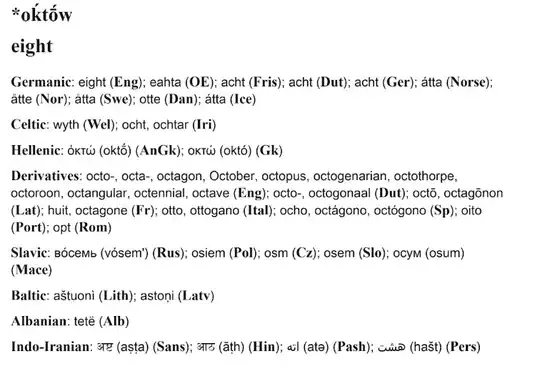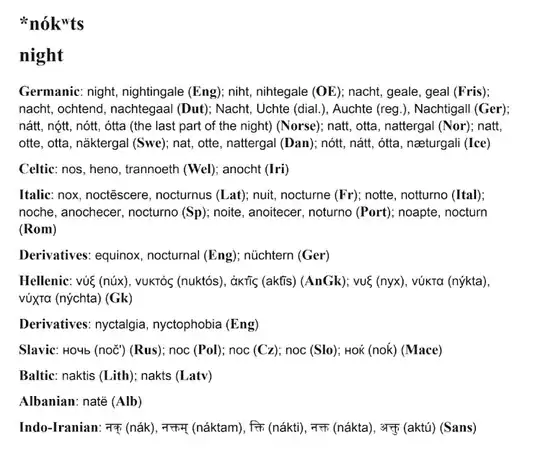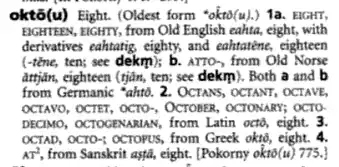I have seen on Facebook, a post (in French) claiming that many words for the night are based on a n+respective number for the number 8. For example on this website,
Language Number 8 night
français huit nuit
anglais eight night
allemand acht nacht
espagnol ocho noche
portugais oito noite
italien otto notte
néerlandais acht nacht
suédois aetta natta
roumain opt noapte
wallon ût nut
occitan uèch nuèch
catalan vuit nit
gascon ueit nueit
picard uit nuit
piedmontais eut neuit
espéranto ok nokto
The post goes even further, claiming that N is a symbol for infinity, and that 8 is the typical infinity symbol rotated.
My first reaction was to dismiss it. But then, I've been thinking about it, and would really like to have reasons to dismiss it.
The infinity symbol dates from 1655 (according to Wikipedia)whereas the word nuit was already in use by 1170 (website in French). Furthermore, the word nuit was used as noit in older French, and derives from noctum (latin) and thus nox (littré in French). But unfortunately, my knowledge of Latin is by far too limited to investigate further on the Latin.
Actually, the last link mentions that for the author M. Ad. Regnier, studying the Sanskrit, it could be related to the word naked (German: nackt, Latin: nuda).
In English, (the ight deriving from eight sounds worse than some other examples), what I gather is that
Old English niht (West Saxon neaht, Anglian næht, neht) "night, darkness [...] from Proto-Germanic *nahts
which relate as well to nox (Latin), nuks (Old Greek) or naktam (Sanskrit). The same website also indicates that
according to Watkins, probably from a verbal root *neg- "to be dark, be night."
But, if the relation night -> infinity -> infinity symbol -> 8 -> night, sounds improbable, I cannot find definitive information on a possible relation between the number 8 and the night.
Can you help me get down to the bottom of that question?




